
Carl Schultz
Assistant Professor
Department of Electrical and Computer Engineering
Aarhus University
cschultz@eng.au.dk

Assistant Professor
Department of Electrical and Computer Engineering
Aarhus University
cschultz@eng.au.dk
I am an Assistant Professor at the Department of Electrical and Computer Engineering (ECE) at Aarhus University. My research aims to develop advanced methods for geometric and qualitative spatial reasoning in the context of Artificial Intelligence and Knowledge Representation and Reasoning, with a particular focus on software engineering methodologies and real-world, industry-scale applications.
Previously I was a researcher and lecturer working in the Spatial Intelligence Lab (SIL) at the University of Muenster (2015-2017), and a postdoctoral researcher in the Cognitive Systems group at the University of Bremen (2010 - 2015). I completed my PhD in the Department of Computer Science at the University of Auckland, supervised by Prof. Robert Amor and Prof. Hans Guesgen (2006 - 2010).
Constraint Logic Programming • Answer Set Programming • Computational Geometry
I develop systems for reasoning about "common sense" spatial relations (near, above, adjacent, parallel, inside, etc.) within Knowledge Representation and Reasoning (KR) frameworks. My aim is to lift semantics and qualitative interpretations from raw numerical spatial data by utilising domain-specific background knowledge.
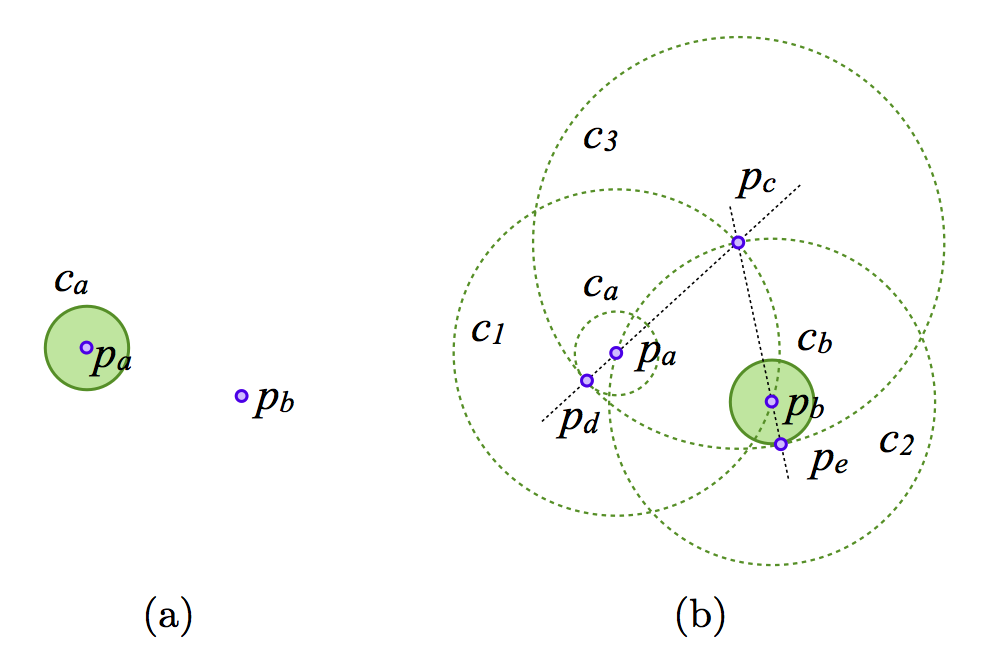
Euclid's ruler and compass method for the compass equivalence theorem, transferring the radius of ca to construct a new circle cb centred on pb with the same radius.
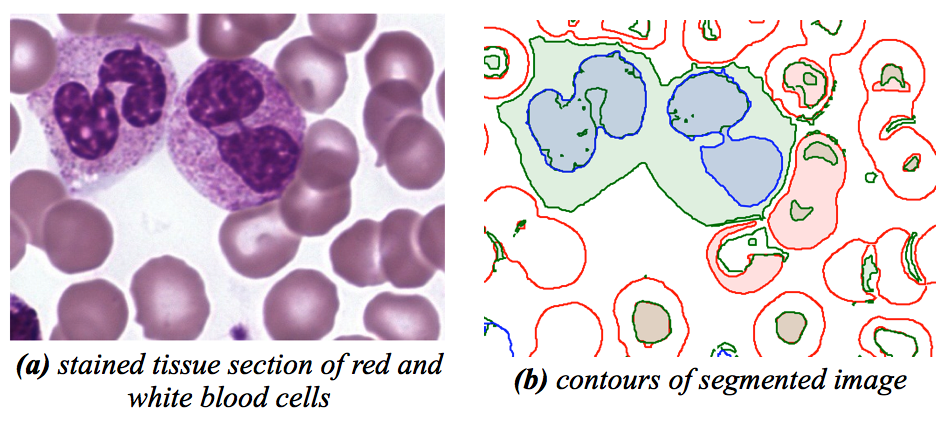
Incorporate cell ontologies and computer vision to build a conceptual model and interactive diagram of objects in the image using CLP(QS), including both semantic and qualitative spatial relations.
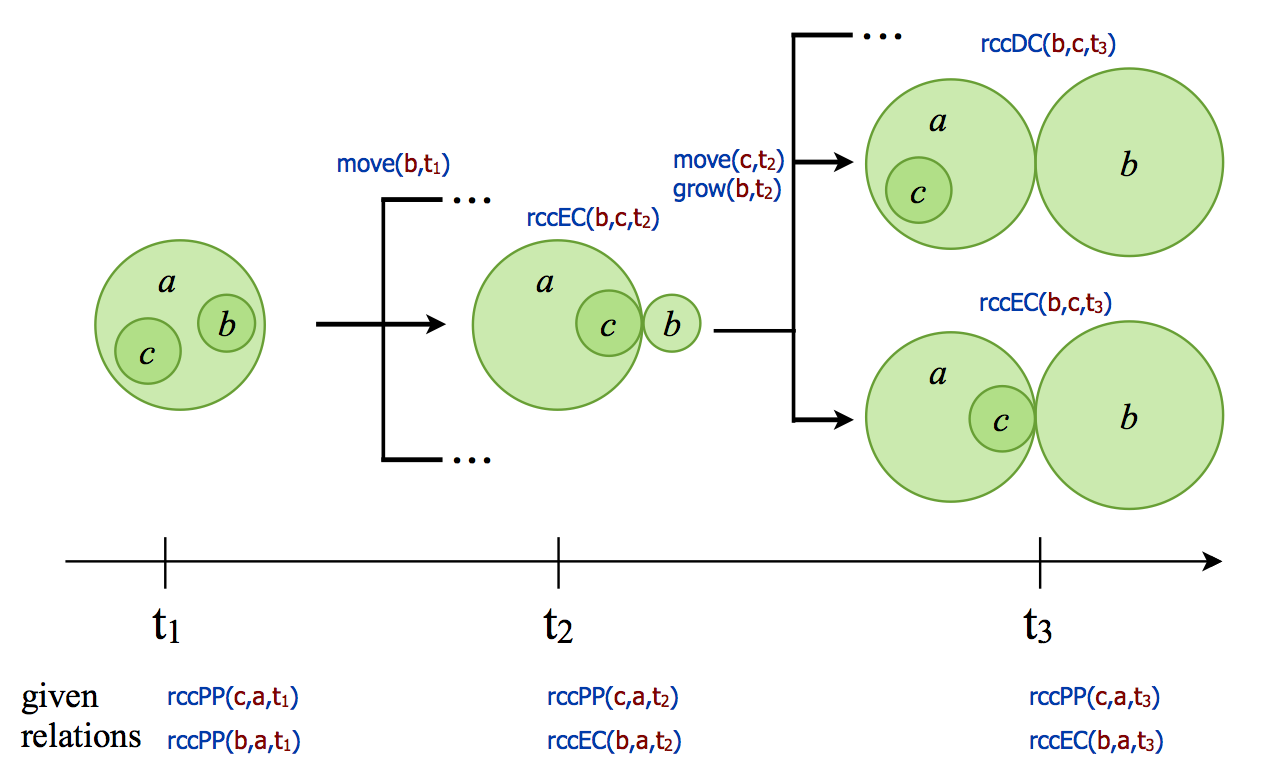
Non-monotonically inferring actions and qualitative spatial relations in ASPMT(QS).
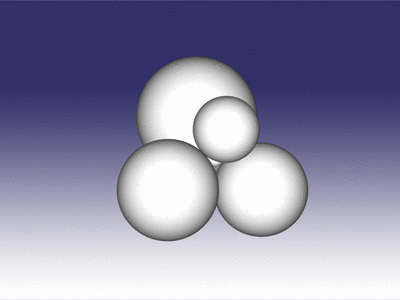
Declaratively finding the maximum number of spheres that can be mutually touching using CLP(QS).
Building Information Modelling • Artificial Intelligence
I employ Artificial Intelligence methods for enhanced Building Information Modelling (BIM) and architectural design, including design analysis and empirical experiments. I am a co-founding member of the DesignSpace Group, an international research and consultation group.
I work with real-world architecture projects, industry-scale data, and industry collaborators, such as the New Parkland Hospital project, currently the largest hospital construction project in the US.
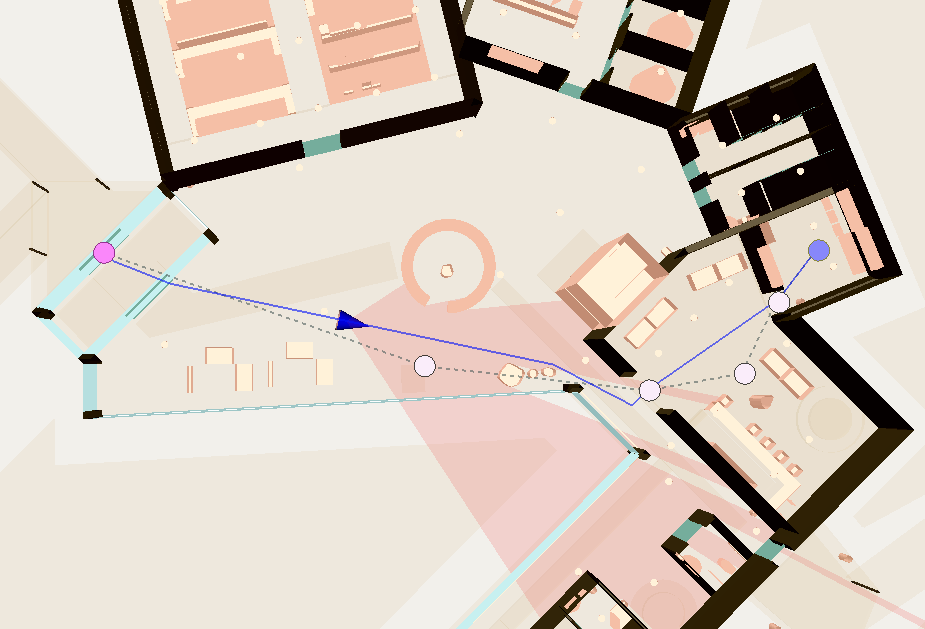
Computing the visibility space (red region) as an agent moves through the environment.
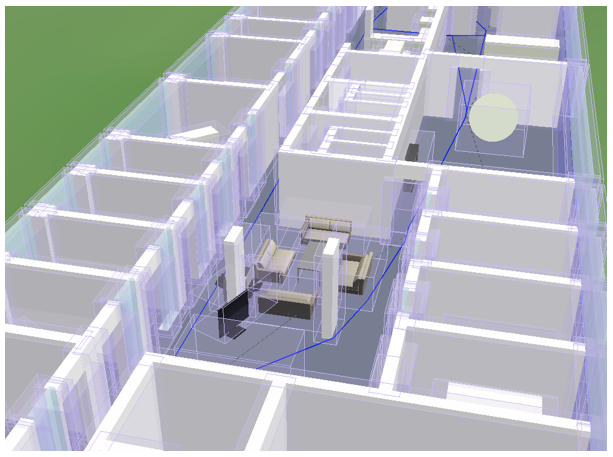
Taking the functional space of objects (blue regions) into account when simulating agent paths through the environment.
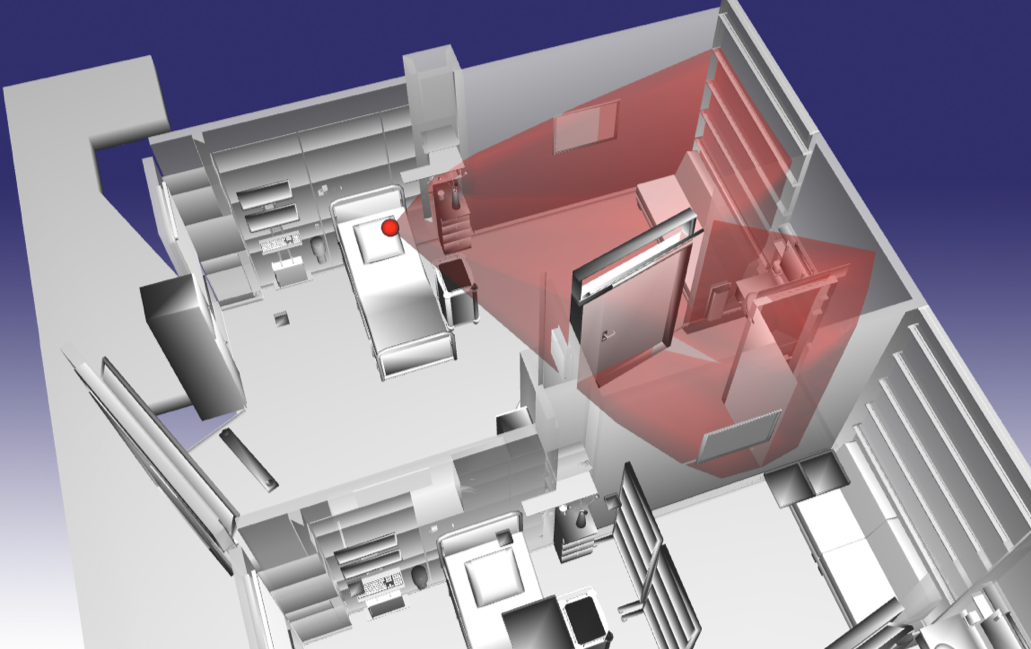
High-level analysis of 3D visibility volumes in real-world hospital building models.

Hierarchical qualitative spatial network of building designs with relative placement and visibility relations.
Constraint Logic Programming• Rule-based Spatial Reasoning
CLP(QS) integrates spatial reasoning within the KR framework Constraint Logic Programming (CLP) to support high-level rule-based spatial reasoning and Question / Answering in a logic programming context.
Answer Set Programming Modulo Theories• Non-monotonic Spatial Reasoning
ASPMT(QS) integrates spatial reasoning within the KR framework Answer Set Programming Modulo Theories (ASPMT) to support spatial abduction, default spatial reasoning, spatial inertia, ramifications, and other forms of non-monotonic spatial reasoning.
Intelligence in Subsurface Infrastructure